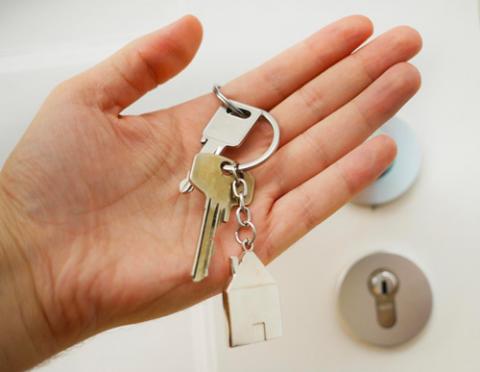Co-renting: what are the rules?
Regardless of whether you prefer private accommodation or social housing, you can choose to co-rent, provided the owner or social landlord agrees.
In practice, there are no hard and fast rules, and practices vary from one landlord to another. However, there are certain points to observe concerning the rental agreement:
- if you set up a flatshare or househare, it is important that your name appears on the rental agreement;
- if you join a pre-existing flatshare or houseshare, you will need to draft an amendment to the rental agreement.
There are two types of rental agreement:
single lease: the names of all the tenants are mentioned. The tenants are bound by a solidarity clause until the end of the agreement. This clause stipulates that if you leave the house or flat before the term of the rental agreement, and the other tenants fail to pay all the rent due, you will be liable for the amount owing. The solidarity clause ceases to be effective 6 months after the end of your notice period
individual lease: each tenant has their own rental agreement, meaning there is no need for a solidarity clause. If one of the tenants leaves, the remaining tenant(s) will not be liable for that person’s rent, and the landlord will choose another tenant.
Finding a houseshare / flatshare or a roommate
To find a houseshare, a flatshare or a roommate, consult the classified ads on these specialist websites! To find a roommate based on shared interests and academic institution: Bubbleflat
To browse houseshare / flatshare offers:
Remember to check out social media: many flatshare / houseshare offers and requests for roommates are posted by students in specific groups.
La Kolocation à Projet Solidaire (KAPS) (Solidarity flatsharing) run by the AFEV
For the start of the new academic year, AFEV Toulouse, the “association of students for the city foundation”, offers places in so-called "kaps", "solidarity flatsharing projects". Aimed exclusively at students, these “kaps” concern 3 residences located in working-class neighbourhoods: Reynerie and Bellefontaine near Université Toulouse - Jean Jaurès and in the Seychron neighbourhood in Colomiers.
These flatshares are organised as follows:
- in a residence with a communal area, laundry room and bike storage room; • in a semi-furnished, two- to five-bedroom flat; • rent of between €235 and €254, including all rental costs, before deduction of housing benefits; • Agreement to give 4 hours of your time per week from September to June, as part of a concrete project aimed at improving daily life in the neighbourhood (tutoring of schoolchildren, for example). For more information about joining the scheme, check out the AFEV website.
Intergenerational housesharing
The principle: you live with an older person who has a spare room available.
What are the conditions?
In exchange for very low rent, or even rent-free accommodation, you provide the older person with certain services. This solution, which is proving increasingly popular, can turn out to be an enriching as well as a reassuring experience for the older person, who no longer experiences the loneliness of living alone. If you decide to try out “intergenerational housesharing”, make sure you both agree on the conditions and arrangements before you sign the agreement.
In Toulouse, two associations offer intergenerational housing:





